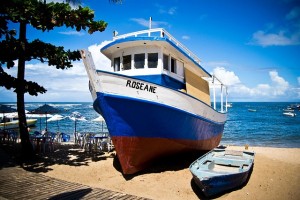right/straight away, immediately, at once
[adverb]
[met-een] ![]()
 ‘Meteen’ is typically translated as ‘right/straight away’ and it reflects more an option of when to do something than an urgent ‘now!’ which could be the case with the adverb ‘onmiddellijk‘. When urgent however, you can say ‘nu meteen’. The opposite would be ‘zo meteen’: in a minute/moment.
‘Meteen’ is typically translated as ‘right/straight away’ and it reflects more an option of when to do something than an urgent ‘now!’ which could be the case with the adverb ‘onmiddellijk‘. When urgent however, you can say ‘nu meteen’. The opposite would be ‘zo meteen’: in a minute/moment.
A common synonym of ‘meteen’ is ‘direct’: at once, directly.
Examples:
– “Ja, ik ruim zo meteen mijn kamer op!” – “Nee, niks daarvan, je doet het nu meteen!”
(“Ok, I’ll clean up my room in a minute!” – “No, no way, you are doing it right now!” Lit. “No, nothing of that, …”)
– “Wilt u de stoel meteen meenemen, of wilt u hem laten bezorgen?”
(“Would you like to take the chair with you straight away, or would you like to have it delivered?”)
– “Het examen is multiple-choice en je krijgt de uitslag meteen na afloop te horen.”
(“The exam is multiple choice and you will receive the result right after the exam has finished.” Lit. “… you will get to hear the outcome right after the end.”)
– “Zullen we het maar meteen doen, dan zijn we ervanaf.”
(“Why don’t we do it right away, then we’re done with it.” Note the use of ‘ervanaf zijn’: it is no longer your problem or concern.)
– “Is het nog laat geworden gisteravond?” – “Nee, we zijn meteen na de film naar huis gegaan.”
(“So did it get late last night?” – “No, we went home straight after the movie.”)
Related words:
– Onmiddellijk: immediately [adverb].
– Zo meteen: in a minute/moment [adverb].
– Direct: at once, directly [adverb].

 ‘Verlengen’ means ‘to make longer’ in the broadest sense of the word. It’s also commonly used when renewing a contract. In some cases it can also mean ‘to enlarge’ if enlarging is realized by lengthening. Use it as you see fit 🙂
‘Verlengen’ means ‘to make longer’ in the broadest sense of the word. It’s also commonly used when renewing a contract. In some cases it can also mean ‘to enlarge’ if enlarging is realized by lengthening. Use it as you see fit 🙂

 ‘Boot’ is the general word for ‘boat’. When you are looking for boots to wear, we call them ‘laarzen’. Bigger ships are called ‘schepen’ in Dutch, with singular form ‘schip’. It’s sometimes a bit unclear when a vessel is a ‘boot’ or a ‘schip’, in general smaller vessels are a ‘boot’. I’ve insulted sailors in the past by referring to their ‘schip’ as a ‘boot’.
‘Boot’ is the general word for ‘boat’. When you are looking for boots to wear, we call them ‘laarzen’. Bigger ships are called ‘schepen’ in Dutch, with singular form ‘schip’. It’s sometimes a bit unclear when a vessel is a ‘boot’ or a ‘schip’, in general smaller vessels are a ‘boot’. I’ve insulted sailors in the past by referring to their ‘schip’ as a ‘boot’.